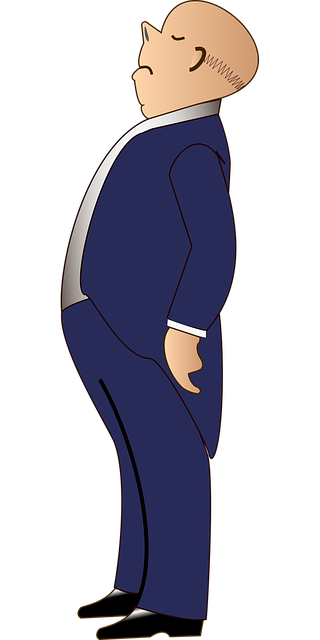 Submitted by Karmic Parody on
Submitted by Karmic Parody on

pixabay.com
The Psychology Of Self-Righteous Indignation
The term "self-righteous" is defined by yourdictionary.com as "filled with or showing a conviction of being morally superior, or more righteous than others; smugly virtuous"
Beautiful. That's exactly it. Not virtuous, but smugly virtuous. It is about feeling superior to someone else. Most of us are most easily tempted into self-righteous indignation when driving. The driver ahead of us is driving too slow, too fast, cuts us off or makes some other terribly heinous error. And we are filled with outrage. We lay on the horn and yell and make sure everyone around knows that driver is not driving "correctly" (or at least how we define correct driving). The nerve of that guy! What a loser.
When listening to someone smoldering with self-righteous indignation I often hear the words, "right", "fair" or "should". "They should do it this way." "They are not doing it the right way." "It's not fair." Why shouldn't we distinguish when people aren't doing things "correctly", or the way they "should" be done, or the "fair" way? For two reasons:
1. Because it's not real. They aren't doing it that way. They are doing it "wrong" or in a way they "shouldn't" or "unfairly". That is the reality. That is what's happening. Expecting them to do something else just sets you up to be frustrated and angry.
2. Because it makes us unhappy. I always ask people, "how much time and energy have you invested in being upset about this? What could you have done with that time and energy instead? Most have invested a lot of both. And for what? Is this issue really that important?
If self-righteous indignation isn't real and it makes us frustrated and angry, why do so many of us do it? Because it feels good. It feels "right". We feel superior to that idiot over there doing things "wrong". We feel better than that loser over there being "unfair".
"Criticism is another form of self-boasting." Emmet Fox
By pointing out the errors of someone else we are attempting to position ourselves as better than them. People with low self esteem, people who are unhappy in their lives, people who are frustrated with where they are in life are most susceptible to self-righteous indignation. By finding someone we believe to be less than or worse than ourselves and condemning them, we manage to feel some sort of superiority.
We can also use this to sabotage ourselves or make ourselves a target. Being intolerant of the mistakes of other people, and pointing them out loudly, will not make you popular. And it can totally destroy a career. I frequently see people living out the Scapegoat role utilizing this technique to alienate themselves.
If you are guilty of this pattern, how do you stop it?
1. Instead of deciding what people should be doing, look at what they are doing and then decide how to react to it.
2. If you find yourself condemning people, examine your motives. Is the issue itself really that important? Is it really worth your time and energy? Is this really a battle you want to take on? Or are you doing it for some other reason?
3. Feel your feelings. How do you feel when you are complaining about or reporting this behavior? Superior? Powerful? Is that the true motivation for it, rather than righting a wrong?
4. Examine the effects. What effects is this behavior having on your life? Has it damaged your career? Cost you friends? Caused conflict within your family?
5. Repeat after me: "I cannot change other people's behavior, only my own." You have no power over other people. Whatever they are doing is what they are going to do. The only person you can change is yourself. And most of us have more than enough work to do developing ourselves without taking on other people's issues.
Self-righteous indignation is a heady, powerful emotion that can be quite exhilirating. But it comes at a high cost. If you can only bring yourself up by putting other people down perhaps you need to look at that. Perhaps your time and energy would be better spent developing your own character rather than shooting down other people's.
Passages from and read more @ http://www.kellevision.com/kellevision/2009/01/outraged-the-psychology-of-righteous-indignation.html
- 863 reads